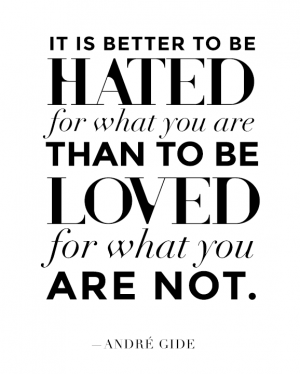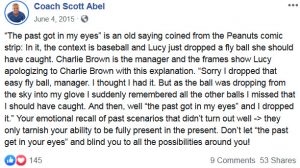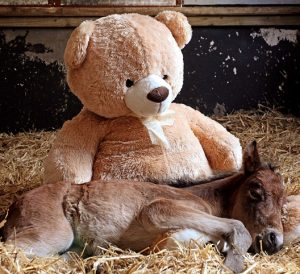 Don’t ask yourself what the world needs. Ask yourself what makes you come alive. And then go and
Don’t ask yourself what the world needs. Ask yourself what makes you come alive. And then go and
do that. Because what the world needs is people who come alive. ~Nelson Mandela
There is a word in Hungarian. It is very expressive, a word I ponder… a lot.
It is “elanyatlanodik”. If I want to translate, so I don’t lose the root, it means becoming a motherless orphan.
The word indicates that a child, at any age, goes through a fundamental loss when they lose the mother.
Half of my students, in some emotional way, lost their mother, the other half would have been better off losing their mother.
What do I mean?
Let me use myself as an example: I had a mother. Physically. But I got no nurturing from her. She cooked, but that is not nurturing. I got beatings, frowns, verbal abuse, name calling. It would have been better for me to physically lose a mother. I would be able to grieve, and keep my self-worth about me…
- Other mothers, in my student group, were users. They used their child for whatever they wanted, or needed, or fancied.
As someone to dump upon, complain to, or someone to proved at a young age, or steal wood from others. To save the day. To influence the father to come back to them.
- Or yet other mothers pushed down, “disciplined” their child, so they can feel better about themselves, or to look better to others.
All cruel and unusual punishment, in my world. Not wrong, but not easy to become a person with this burden…
- Fathers can be real cruel. If they are worthless… with that. If they are “worthy”, with that.
 It seems that a parent’s job, judging from their behavior, is to pass on the damage the parent received from their parents.
It seems that a parent’s job, judging from their behavior, is to pass on the damage the parent received from their parents.
And it seems that my students are, unconsciously, following this “tradition”… pass the damage on to their kids.
Being damaged in any way will WARP your world view, your self view, your behavior, your values… and will give you a false sense of what is True North… The path of life where you can be happy, fulfilled, and feel good about yourself and your life.
In the Playground we attempt to undo the damage.
My theory is this: if you said about anything or anyone, maybe ever, that it’s wrong, or they are wrong, or you are wrong, wrong action, wrong as in “not good” person, you are damaged.
Why? Aren’t certain actions wrong? Aren’t certain people wrong?
In your speaking… yes. Anything or anyone who doesn’t condone YOU, support YOU, love YOU, approve of YOU, is wrong… looked at through the personal perspective, the limited perspective of the human mind.
If you look at the same action, the same person from another person’s eyes, you will see something else.
And if you manage to look through the Universe’s eyes, through reality, you will see just actions, just people, doing what they are doing.
 Wrong is a label. A label you learned, or a label you made up. Not reality.
Wrong is a label. A label you learned, or a label you made up. Not reality.
The Playground is designed to help you take a different look at the incidents in your life, to take a different look at yourself, so you can, eventually SEE that there was nothing wrong there, in the behavior, or in you, or in them…
It could have been painful. Unloving. Cruel, Uncaring. Maybe even evil. But not wrong.
Wrong suggests that there is a right way.
It is only true from the limited perspective of the human mind. From other perspectives right and wrong switch places, or disappear completely.
In the Playground I try to teach you to see. To see things the way they are, in reality.
 “The past got in my eyes” is an old saying coined from the Peanuts comic strip: In it, the context is baseball and Lucy just dropped a fly ball she should have caught. Charlie Brown is the manager and the frames show Lucy apologizing to Charlie Brown with this explanation. “Sorry I dropped that easy fly ball, manager. I thought I had it. But as the ball was dropping from the sky into my glove I suddenly remembered all the other balls I missed that I should have caught. And then, well “the past got in my eyes” and I dropped it.” Your emotional recall of past scenarios that didn’t turn out well -> they only tarnish your ability to be fully present in the present. Don’t let “the past get in your eyes” and blind you to all the possibilities around you!
“The past got in my eyes” is an old saying coined from the Peanuts comic strip: In it, the context is baseball and Lucy just dropped a fly ball she should have caught. Charlie Brown is the manager and the frames show Lucy apologizing to Charlie Brown with this explanation. “Sorry I dropped that easy fly ball, manager. I thought I had it. But as the ball was dropping from the sky into my glove I suddenly remembered all the other balls I missed that I should have caught. And then, well “the past got in my eyes” and I dropped it.” Your emotional recall of past scenarios that didn’t turn out well -> they only tarnish your ability to be fully present in the present. Don’t let “the past get in your eyes” and blind you to all the possibilities around you!
Here is the Jewish take on that same cartoon:
There is a Peanuts cartoon that poses food for thought for the High Holy Days. In the cartoon, Lucy walks toward Charlie Brown, who is standing on the pitching mound. She tosses him the baseball and says, “Sorry, I missed that easy fly ball. I thought I had it, but suddenly I remembered all the others I’ve missed. The past got in my eyes!”
The purpose of the High Holy Days is to acknowledge the past, deal with it and ask for forgiveness for our failures. The hope is that we leave it behind and begin our new year with a clean slate. This cartoon reminds us that if we choose to allow it, the past can continue to influence our present and, in turn, our future.
To what avail, we might ask? Are we to let our past misdeeds be the sole determinant of what happens to our future? Or perhaps, if we enter the New Year with a new image, one in which the past does not get in our eyes, this time we may catch on to the importance of taking a renewed look at dealing with life.
from: http://www.jewbelong.com/
Clearing yourself from the past, even just once a year, can make you more of a winner in life. There is more to being Jewish than you thought… right?
The Playground, I am just realizing, is a very Jewish thing.
You see, Catholics have confession… but saying a few prayers will not change your view of things… If god already judged, and if your priest already judged, then you surely have done WRONG… and, you see, how you see what happened isn’t going to change… it still will be wrong.
In the Playground, our job, our quest is to remove even the idea of wrong… so we remove all that from our future.
What makes our future so full of the past is the idea, the conviction that there can be any wrong in reality. That you can be wrong, that an action can be wrong, that others can be wrong… BECAUSE there are right things… Right?
No. There are no right things either. There are things that work, but they are not right either.
Back a few years ago, when I put my “Sleep Rescue” on Amazon, and it was selling like hotcake… it felt more than right to me. Finally I was proven RIGHT.
But to other sellers that was really wrong. I was encroaching on their territory… so they reported to Amazon that I was a fake, wrong, or whatever b.s. they said… I’ll never know. I don’t care.
So you see, if something can look right to me, but wrong to another, we are both mistaken. We are looking through the limited perspective of the human mind… in this case personal gain, greed, wanting to win… whatever.
Me flaunting my success wasn’t wrong either… It simply didn’t work well for me. Amazon kicked my product off its site.
What we consider wrong is the gap between our expectation and what we got. The bigger the gap, the bigger “wrong” we experience.
Then we proceed trying to fix what we experience as wrong… but because the wrong is not real (in reality nothing is wrong) we are no doing something that is wasting our time, our energy, our life. Fixing something that cannot be fixed… doesn’t need fixing, because it wasn’t wrong to begin with.
- Some fix by inventing a persona who, hopefully, can slide by, even if those things are wrong about them.
- Some fix by never even attempt to do anything that would make people notice how wrong they are
- Another version of this is talking a good talk, doing nothing to follow up
- Some fix by becoming a Good Samaritan
- Some fix by becoming perpetually angry, becoming alternatively meek or superior, by becoming someone who sets up life to be the hero: saving the day, etc.
The Anna Karenina principle says: Happy families are all alike; every unhappy family is unhappy in its own way.
The Anna Karenina Principle and the phenomenon of positive deviance
The Anna Karenina principle describes an endeavor in which a deficiency in any one of a number of factors dooms it to failure. Consequently, a successful endeavor (subject to this principle) is one where every possible deficiency has been avoided.
The name of the principle derives from Leo Tolstoy’s book Anna Karenina, which begins:
Happy families are all alike; every unhappy family is unhappy in its own way.
In statistics, the term Anna Karenina principle is used to describe significance tests: there are any number of ways in which a dataset may violate the null hypothesis and only one in which all the assumptions are satisfied.
Applied it here: all happy, successful people are happy and all successful people are alike… all unhappy, underachiever people are unhappy in their own way.
 One other behavior, or attitude, that unhappy underachievers have is the homework attitude.
One other behavior, or attitude, that unhappy underachievers have is the homework attitude.
In that the unsuccessful person keeps their eyes on the prize… missing the actions and the process… wishing it away, and thus never accomplishing what they set out to accomplish.
The bigger the “goal”, the bigger the “prize”, the bigger the WRONG will be… and the tighter their room to move… the less options, the less possibility for success they will see.
All the wrongs get filed in the future… crowding it. Crowding out any possibility for success, happiness, for fulfillment.
By clearing out the future from all the wrongs… you can start living a life from nothing… from everything/nothing… Where everything is possible, and nothing is impossible.
Some things are more likely… But unlikely is not wrong, it is just unlikely.
The capacity “Seeing Reason” naturally turns on at 800 vibration… but the average vibration on the Planet is 100 right now. It has gone down. Way down.
 Obviously to be able to take advantage of the “Seeing Reason” capacity will take a lot of work…
Obviously to be able to take advantage of the “Seeing Reason” capacity will take a lot of work…
You clear out the wrong through conversations. If you talk to me, then it is a back and forth. If you do it in a Partner Call, part of the Playground, you do it by following a script… while another participant, the partner pretends to listen.
This is the best I have been able to come up with. The more the partner listens, the more you can see your incident from more vantage points… the more they are stuck in their wrong, the less you can see.
One of the participants started to see more of the truth, when he did the work solo… he heard himself… a more faithful echo than his partner.
But that is the method… My job is to give different vantage points… the participants’ job is to look at incidents, find the wrong, and change their minds about it… using the different vantage points.
Simple. Could be easy… But it seems it isn’t.
Just like the Anna Karenina Principle says: all successful students are similar, unsuccessful students are unsuccessful in their own way.
- The typical ways are being right, looking good, winning, dominating, justifying, and avoiding responsibility… i.e. their own role in their no success.
- Or if they are the avoiding type of person, the typical ways are avoiding being wrong, avoiding looking bad, avoid losing, avoid domination, deflecting blame, and, of course avoiding responsibility for their own actions, their own attitudes…
One more thing I want to talk about, that is very important.
Osho said that unless you are very miserable, you won’t change.
 And it is true. The more bearable your life is, the less likely it is that you’ll do what you need to do to clear out the wrongs, to change yourself or your attitude.
And it is true. The more bearable your life is, the less likely it is that you’ll do what you need to do to clear out the wrongs, to change yourself or your attitude.
Or even to allow yourself to see… to allow yourself to see that there was never anything wrong with you, never anything wrong with anything.
Why rock the boat, why fix what is still working.
And that is the reason that you see clearly… not the reason that you are miserable… not the reason it is worth doing the work so your future can be everything and nothing… glorious and fulfilling.
Read the original article: What’s blocking you from having a fulfilled life?
